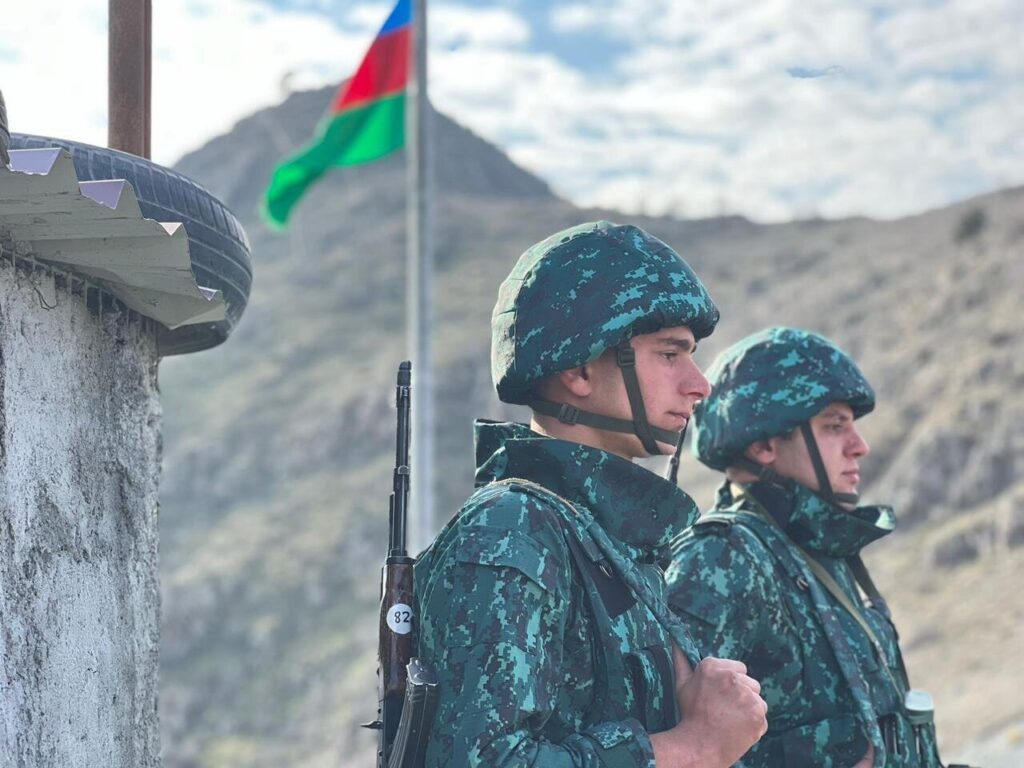The conflict over Tehran-Nagorno-Karabakh has been a source of tension between Armenia and Azerbaijan for decades.
The region, internationally recognized as part of Azerbaijan, was seized by Armenian forces in the early 1990s, causing a war in which thousands of people died and many people were driven away.
The ceasefire was mediated in 1994, but the conflict remained unresolved, with occasional flare-ups leading to brutal conflicts in 2020. However, the underlying issues of Nagorno-Karabakh remain unresolved, continuing to threaten stability in the South Caucasus.
In March 2025, Armenia and Azerbaijan took an important step towards ending the nearly 40-year conflict when they agreed to the text of the peace treaty. With this agreement, Armenia abandoned its claims against Nagorno-Karabakh and recognized the region as part of Azerbaijan. This important step has brought hope for lasting peace in areas that have long been plagued by hostility.
As a major regional player with close historical and cultural ties to both Armenia and Azerbaijan, Iran has long advocated for a peaceful resolution to the conflict. Iran’s diplomatic approach consistently emphasizes dialogue, respect for territorial integrity and regional cooperation. Therefore, Tehran welcomed the peace agreement, and spokesman for the Ministry of Foreign Affairs Esmaeir Baghey described it as a “necessary and important step” to achieve long-term peace in the South Caucasus.
Iran’s support for the peace process was further emphasized by the visit of Iran’s President Masuud Pezeshkian to Baku on April 28th. During his visit, Peshshkian met with high-ranking Azerbaijani officials to discuss strengthening bilateral relations and implementing various agreements, particularly trade and security. He also reiterated Iran’s commitment to promoting stability and peace in the South Caucasus.
But while the peace deal is welcomed by many, the region’s vulnerable diplomatic environment has been temporarily shaken by Iran’s double-trade allegations. In July 2024, the UK-based opposition media outlet released a report that Tehran had sold $500 million worth of weapons to Armenia, including suicide drones. The report, citing anonymous sources, claimed that Iran and Armenia were engaged in military cooperation, including sharing intelligence and establishing bases in Armenian soils.
The report has caused a stir in Azerbaijan. There, the allegations were seen as a threat to relations with Iran. However, both Iranian and Armenian officials quickly denied the military deal claim. Iranian authorities have denounced the report as part of a broader misinformation campaign designed to undermine Iran’s diplomatic efforts in the region.
Iranian media also pointed to the questionable background of Iran International, which is accused of receiving funds from entities related to Saudi Arabia and Israel. Tehran has consistently insisted on a neutral stance in the South Caucasus and avoiding allies in line with the conflict between Armenia and Azerbaijan.
Iran’s stance on the Karabakh issue has been consistent over the years. In 2020, Ayatollah Seyed Ali Khamenei, leader of the Islamic Revolution, made clear that Armenia-occupied territory must be returned to Azerbaijan, emphasizing that Azerbaijan has all the rights to internationally recognized lands. The position was reaffirmed in several official statements, including a television speech in which Ayatollah Khamenei warned that the conflict over Nagorno-Karabakh posed a serious threat to the safety of the region.
Tehran’s diplomatic efforts were important in fostering dialogue between Armenia and Azerbaijan. Iran continues to insist on direct negotiations between the two countries, urging them to resolve their differences peacefully. Iran’s efforts have been guided by a broader vision for a stable, secure and cooperative South Caucasus, essential to the prosperity of the region.
In his recent remarks, Deputy Foreign Minister Majid Takt e Ravanchi emphasized that Iran is still committed to supporting the peace process. He highlighted the importance of peace agreements on regional stability and expressed Iran’s willingness to help both Armenia and Azerbaijan finalize and implement the deal. Takht-e-Ravanchi also reiterated that Iran believes in the importance of territorial integrity and respecting international law, and stresses that attempts to occupy other countries’ territory through military force must be condemned.
As a neighbor of both Armenia and Azerbaijan, Iran has always tried to become a stable force in the South Caucasus. The country’s commitment to peace and diplomacy is evident in its continued support for peace agreements and efforts to promote cooperation between the two countries.

